Counter Foto exhibits Molla Sagar’s documentary film on Ritwik Ghatak
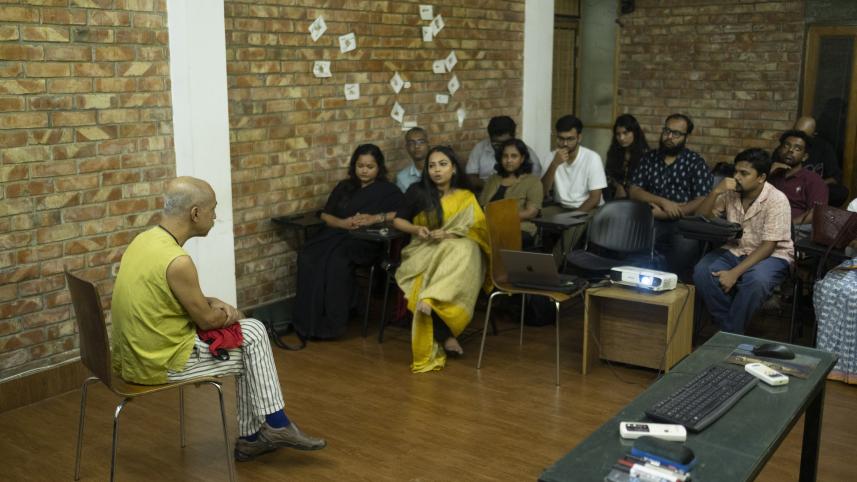
All art is political, even if it is captured through an apolitical lens and especially when it comes to legendary filmmaker Ritwik Kumar Ghatak. Born in Dhaka in 1925, Ghatak has lived through two major eras in history; the partition of 1947 and the liberation war of 1971. He was a member of the Indian Communist Party and was involved in Politics throughout his life and it was apparent in the films he made.
His whole life was upended during the Partition of 1947. Separated from his twin sister who remained in Pakistan, he left for India with his family, abandoning their ancestral home, belongings, and the memories of childhood.
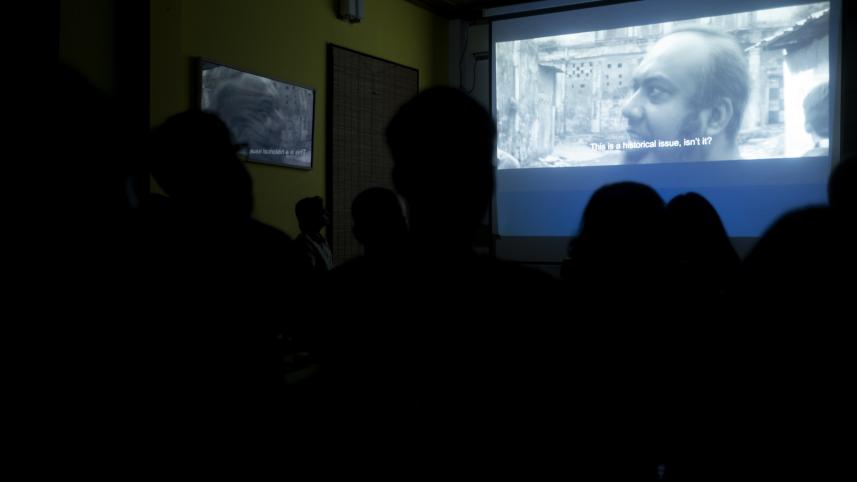
The trauma of that division haunted him throughout his life and became the driving force behind his lifelong struggle for justice and equality, often at odds with many around him. However, even if he wasn't, his films were adored by the public. The films rich in culture, music, song and dances often had subtle metaphors linking it to his political ideologies. In many ways, his cinema was almost autobiographical that spoke of the victims of partition. His three masterpieces, "Komal Gandhar", "Meghe Dhaka Tara", and "Subarnarekha", are collectively called the "Partition Trilogy".
So, when Molla Sagar's film "Bhabar Bhita – The Home That Held Bhaba" ended abruptly without addressing the politics surrounding its subject, it felt both safe and, frankly, disappointing.
The film traces Sagar's journey through Puran Dhaka as he searches for Ritwik Ghatak's ancestral home. With the help of Ghatak's twin sister, Pratiti Devi, and an old photograph in hand, Sagar wanders the narrow lanes, asking locals about the house that once nurtured one of Bengal's most visionary filmmakers.
The search, however, proves far from easy. Many refuse to speak; others have never heard of Ghatak. Their guardedness feels uncharacteristic of the traditionally warm, atithiporayon (hospitable) Bengali spirit, until one recalls the history that shaped this silence.
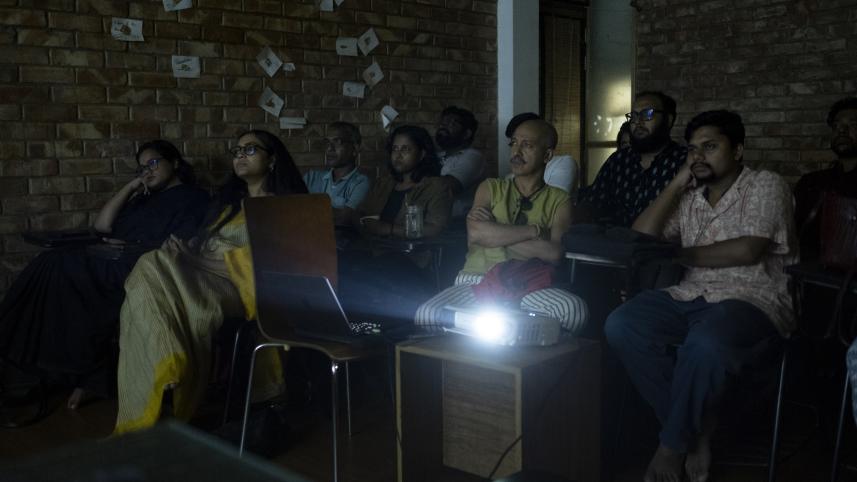
After the Partition, religious lines tore communities apart: Hindus in Pakistan fled to India, and Muslims in India fled to Pakistan. Later, the 1965 Shatru Shampatti Ain (Enemy Property Act) allowed individuals to claim the properties left behind by the displaced. Many of these claims were dubious, born of land grabbing rather than legal transfer.
When Sagar and his crew arrived with cameras, the locals' unease made sense. They feared that reopening the past might also reopen questions of ownership, and perhaps, of guilt.
Sagar began filming "Bhabar Bhita" in 2014 and continued his work through 2017. Over those years, he captured more than 250 hours of footage, which he condensed into a 30-minute film. During the QnA session, he mentioned that he wanted to make it even shorter, preferably just over 10 minutes.
When he found Pratiti Devi in 2014, she was already bedridden. Her memories were foggy, yet she spoke of Ritwik fondly. "Bhabi and Bhaba", the twins were born and spent a significant time of their lives in that home in Puran Dhaka. She talks about Dhaka as "the place where Ritwik was born, and the place where I will die" stating it as the reason why she decided to move back and chose Mitford Hospital for her treatment.
In her hazy memories, she couldn't specify exactly where their house was located, the street or the area. She just remembered fond memories with her brother, how Ritwik would never sleep in his own bed, rather sleep between his mother and sister and spend the whole night telling stories.
She also remembered how the first draft of "Titas Ekti Nodir Naam" came to him in an adrenaline-infused stupor one night. The words were so urgent that he needed to write them down immediately. It being so late and night, and with no paper at home, Devi handed him a freshly starched saree for him to write down his script. In a beautifully poetic gesture, Sagar later chose to screen the first edited version of "Bhabar Bhita" on a white Tangail taat saree for the locals of the neighborhood.
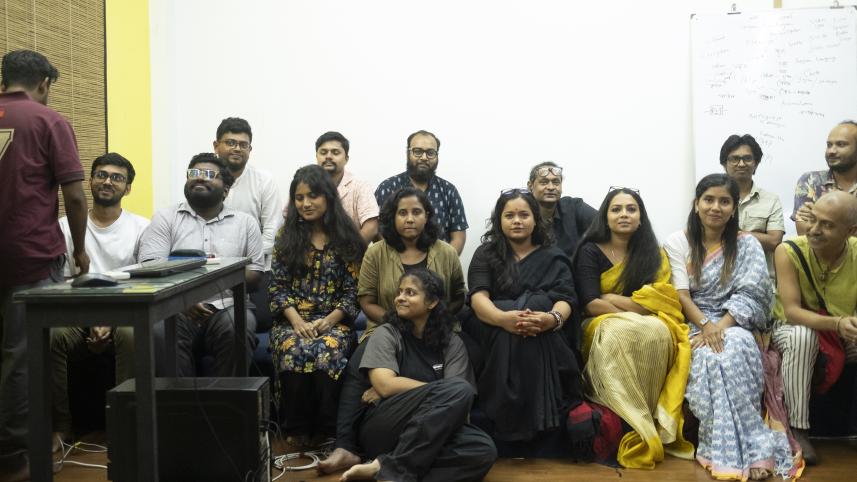
The film had a lot of good artistic decisions, like choosing to make a photo of Ritwik the protagonist of the film, keeping it at the front of the camera while roaming through the streets. The decision to make the film black and white, and starting the film with the scene of siblings talking about a photograph in Meghe Dhaka Taara. It included clips and quotes from people close to Ritwik, like the renowned Bangladeshi lyricist, freedom-fighter and one of Ritwik's closest friends, Kausar Ahmed Choudhury.
Sagar stated that he wanted to make the film apolitical, just nudging it to the direction of the perils of the people that were victims of the partition. Despite having the shoot ending in 2017, he had held onto the film until this year, on the eve of Ritwik's 100th birth anniversary in 2025. He intends to release another film in his honour before November 4.
Ritwik Kumar Ghatak's home in Rajshahi, was demolished by the locals post-July on 5 and August, 2024 by the locals in what seemed like a communal rift. The Rajshahi cultural society had petitioned as far back as 2017 to preserve it as a heritage site, but their appeals went unheard. The situation is tragic but it opens the door to important conversations about the necessity of preservation of culture and art.
Bhabar Bhita was first screened in Bengal Shilpalay on September 25, and on Counter Foto, the center for photography in Shewrapara on October 10. Molla Sagar was present at both the events taking feedback and explaining his artistic choices behind the film. The event is organised by Life Bangladesh in association with Chhut Chhobi Chhaya Adda.



 For all latest news, follow The Daily Star's Google News channel.
For all latest news, follow The Daily Star's Google News channel. 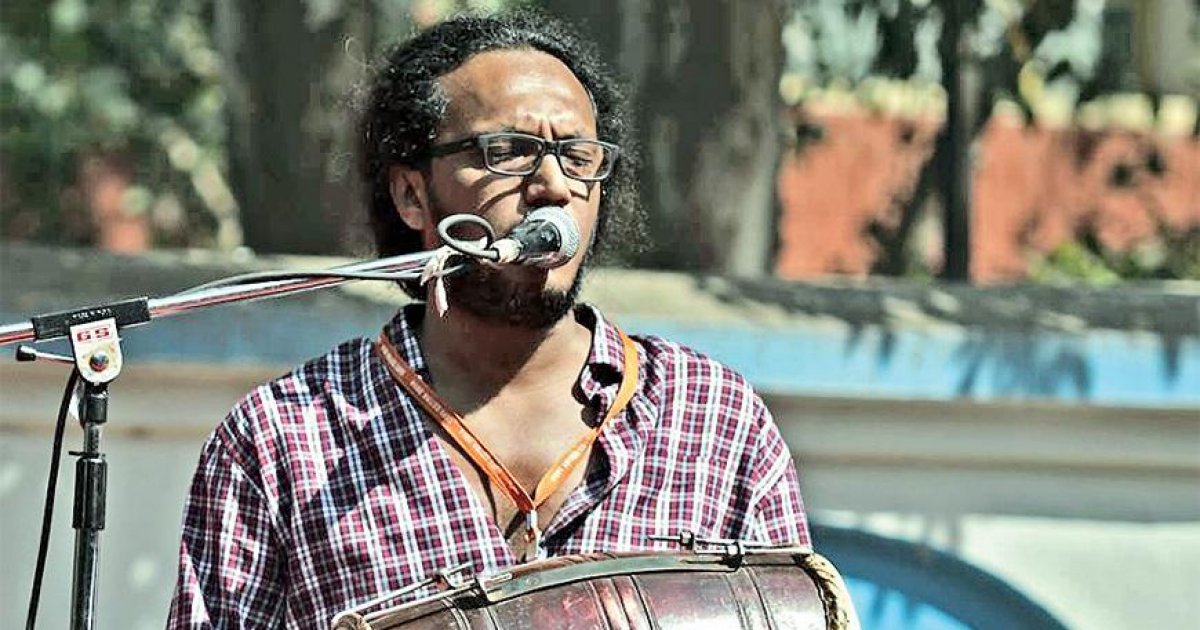
Comments